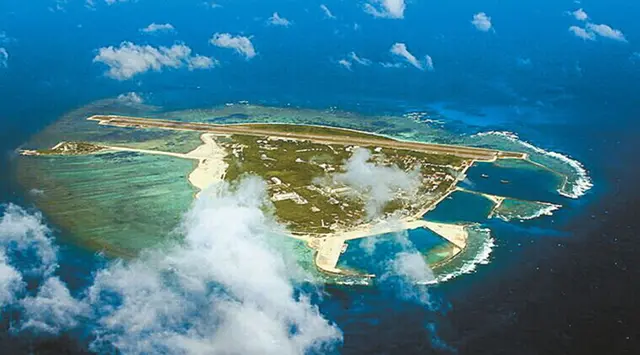Arbitration by the Permanent Court of Arbitration (PCA) following the unilateral application of the Philippines over its dispute with China in the South China Sea "would endanger the peace and stability" in the region, said French sinologue Pierre Picquart.
"What seems questionable is a so-called 'international arbitration,' unrecognized by China, trying to impose a settlement between Beijing and Manila," Picquart told Xinhua in a recent interview.
While the PCA is about to announce on July 12 its decision over the request of the Philippines, presented unilaterally in 2013 concerning the territorial dispute between Beijing and Manila in the South China Sea, China has repeatedly stated that it does not recognize the legitimacy of the court in this case and therefore can not accept its conclusions.
According to him, "the interference, by one or more third parties with an indirect interest inviting other countries and organizations to express their opposition against China, would complicate and endanger the peace and stability in the South China Sea."
French sinologue Pierre Picquart
"The arbitration over the South China Sea demanded by former Philippine president Benigno S. Aquino III will not lead to a peaceful solution. However, the new president of the Philippines Rodrigo Duterte wants to have a conversation with China over the disputes in the South China Sea, in order to, presumably, to have a mutually beneficial relationship (with China)," Picquart said.
The China expert stressed that "China has always encouraged ' win-win' partnerships and the bilateral dialogue in solving border issues."
"This applies with the Philippines, just as in all other disputes in the South China Sea," and "is consistent and logical that Beijing legitimately preserves its historic interests," he explained.
Picquart hopes that the dispute between China and the Philippines "would be settled through bilateral negotiations based on respect for historical facts and in accordance with international law."
He also wishes Manila would work with Beijing to "appropriately find a balance in these disputes for the peace in the South China Sea."
Other voices also call for peaceful resolution regarding this issue.
Jeronimo Osa Osa Ecoro, Secretary General of Equatorial Guinean ruling Democratic Party, on Thursday called for peaceful solution to the South China Sea dispute.
In an interview with Xinhua, Osa insisted that the disputed countries should solve their dispute through dialogues and negotiations.
Osa said Manila's unilateral request on international arbitration is not adequate and it will go against the peace and security in the South China Sea. He called on the Philippines to return to the negotiation table instead of seeking arbitration.
Papua New Guinea (PNG) said on Thursday that it respected China's position on the South China Sea issue and supported direct consultation between parties concerned.
PNG upholds that maritime disputes should be peacefully resolved by parties directly concerned through consultation and negotiation in accordance with international law, according to a joint press release between China and the PNG, issued after the meeting between President Xi Jinping and visiting PNG Prime Minister Peter O'Neill at the Great Hall of the People.
China reiterated its principled position on the South China Sea issue and stressed its commitment to maintaining peace and stability in the South China Sea, its legitimate and lawful rights and interests in the South China Sea, and its right to independently choose the means of dispute settlement in accordance with law, the press release said.
(APD)
 简体中文
简体中文



